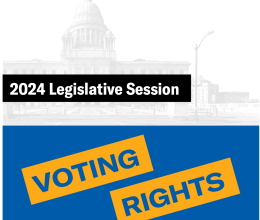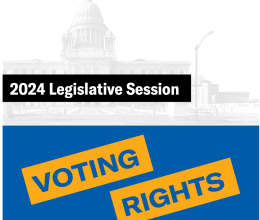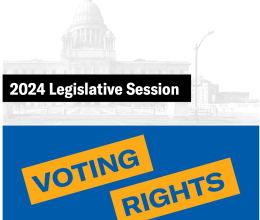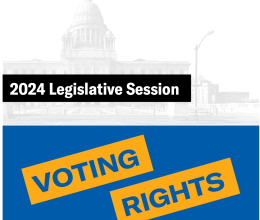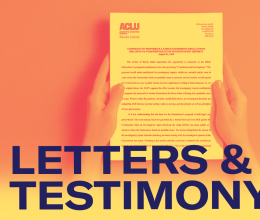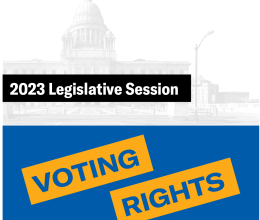In a letter to the state Board of Elections, the ACLU of RI has called on the Board to revise its planned procedures for handling certain provisional ballots that will be cast in Tuesday’s election, because the Board’s policy “has the potential to unfairly disenfranchise hundreds, if not thousands, of legitimate voters – especially voters in poorer districts.”
The Board has adopted procedures requiring any person who registered by mail since January 1, 2003 and did not submit an identification document with their application to present ID when they vote on Tuesday. Voters without ID will, pursuant to a 2002 federal law known as the Help America Vote Act (HAVA), be given a provisional ballot to fill out. However, the ACLU learned this week that, unbeknownst to the naïve voters who take the time to fill out the ballot, the Board of Elections has decided that those ballots are simply not going to be counted.
Calling the situation “cause for alarm,” RI ACLU executive director Steven Brown wrote that, under HAVA, “the mere failure to present ID cannot, in and of itself, serve as grounds to discount a ballot when the voter has otherwise complied with state law and there is no individualized objection to a particular ballot’s validity. Because state law does not contain a polling place identification requirement whether a person has registered in person or by mail, there is no basis for the state to reject these ballots.”
The ACLU further learned that these voters would neither be advised by polling officials that their ballots would be thrown out, nor encouraged to instead return to the polling place with ID. The ACLU’s letter noted that the ID requirement would mostly affect people who do not drive – particularly low-income people in poorer voting districts, where significant voter registration drives have taken place over the past year – since a driver’s license is the most common form of ID likely to be carried by a voter. “It is thus possible,” said the letter, “that hundreds of voters will participate on Tuesday in what, for them, can only be considered a sham process in (not) exercising their right to the franchise.
“We certainly recognize the state’s interest in averting voter fraud, but this can be, and is, addressed in a myriad number of other ways, including the severe criminal penalties attendant upon fraudulent voting, and the presence of individuals at the polls with the right to challenge the eligibility of any purported voter. In fact, the overwhelming majority of voters – those registered to vote before January 1, 2003 and those who have registered since then at any of numerous state or local offices – are under no obligation to present any identification at all, so singling out recently registered voters in this way serves no substantial purpose. It does, however, have the effect of unnecessarily disenfranchising many qualified voters, especially those in poorer and minority communities.”
The letter concluded: “In order to avoid this serious disenfranchisement of qualified voters, we ask for an immediate formal acknowledgement from the Board that the provisional ballots from mail-registered voters who are unable to provide identification at the polls will nonetheless be counted, absent a specific determination that the person is unqualified under state law to vote.” If the problem is not informally resolved, the ACLU is considering emergency legal action to protect voters’ rights.

